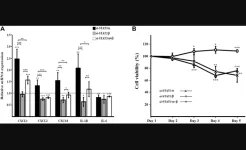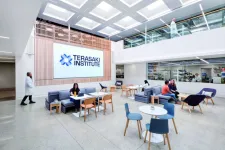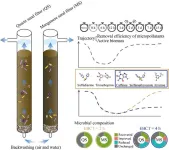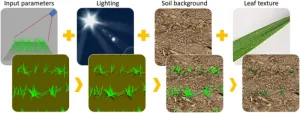The conservation laws of a dynamical system are no mystery to artificial intelligence
Researchers from Osaka University have developed an artificial intelligence algorithm that discovers the underlying conservation laws of real-world dynamical systems, not just the superficial dynamics
2023-04-27
(Press-News.org)
Osaka, Japan – Many real-world systems, from climate systems to the physical mechanisms of robots, are governed by the invariant quantities that arise from their underlying geometric structures. Modelling these systems using computer simulations is a key tool for understanding them (for weather forecasting, for instance, or developing robot locomotion). It’s often possible to collect data for these systems, but making sense of those data to build a model is a more challenging task.
Artificial intelligence has long been used to analyze the data of systems with known conservation laws. However, in the real world, these laws are often unknown. To address this problem, researchers from Osaka University developed an algorithm named as FINDE, which not only finds the quantities of known laws, but also those of unknown ones, which could lead to scientific discoveries.
FINDE assumes invariant quantities and projects the dynamics into the tangent space of a manifold defined by the quantities. This allows FINDE to learn these dynamics and invariant quantities jointly, preserving the conservation laws. Real-world systems are continuous systems, but numerical computer algorithms can only model discrete systems, which can lead to errors and ultimately reduce the accuracy of simulations. Hence, FINDE also uses discrete gradients, which are defined in discrete time, to define the discrete counterpart of the tangent space, and then it can be used without accumulating errors.
“Because FINDE learns and preserves the conservation laws of a system,” says Prof. Takashi Matsubara, first author of the study, “our computer simulations will be more accurate over the long term.”
However, FINDE is about more than just reducing modelling errors. If the laws governing a system are unknown, the number of laws might also be unknown. FINDE can be used to determine this number by testing the accuracy of models with different numbers of laws. “This reveals additional information about the underlying structure of a system,” says Prof. Matsubara, and that could lead to scientific discoveries about the systems under study.
The researchers tested the ability of FINDE to discover and model systems on a variety of datasets. A two-body gravitational system, shallow water waves, a double pendulum, and the electrical circuit model of a biological neuron were all considered. FINDE was able to find and preserve the first integrals that arise from the conservation laws governing these systems in all cases. As a result, FINDE is expected to contribute to the acceleration and sophistication of future computer-aided engineering and physics simulations.
###
The article, “FINDE: Neural Differential Equations for Finding and Preserving Invariant Quantities,” will be presented at the 2023 International Conference on Learning Representations.
About Osaka University
Osaka University was founded in 1931 as one of the seven imperial universities of Japan and is now one of Japan's leading comprehensive universities with a broad disciplinary spectrum. This strength is coupled with a singular drive for innovation that extends throughout the scientific process, from fundamental research to the creation of applied technology with positive economic impacts. Its commitment to innovation has been recognized in Japan and around the world, being named Japan's most innovative university in 2015 (Reuters 2015 Top 100) and one of the most innovative institutions in the world in 2017 (Innovative Universities and the Nature Index Innovation 2017). Now, Osaka University is leveraging its role as a Designated National University Corporation selected by the Ministry of Education, Culture, Sports, Science and Technology to contribute to innovation for human welfare, sustainable development of society, and social transformation.
Website: https://resou.osaka-u.ac.jp/en
END
[Attachments] See images for this press release:
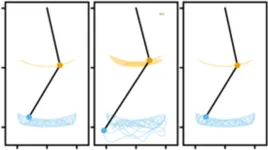
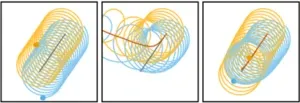
ELSE PRESS RELEASES FROM THIS DATE:
2023-04-27
Arlington, Va., April 27, 2023 – A serious infectious threat response initiative (SITRI) implemented by the Infection Prevention and Control (IPC) team at Veterans Affairs North Texas Health Care System (VANTHCS) positively impacted IPC staff burnout and helped prevent an increase in healthcare-associated infections (HAIs) during the COVID-19 pandemic. The findings, published today in the American Journal of Infection Control (AJIC), suggest that pre-emptive investment in preparedness initiatives can enable healthcare facilities to retain routine prevention efforts and improve patient safety during infectious disease outbreaks.
“During ...
2023-04-27
The World Health Organization’s draft drinking water guidance for the two most well-studied per- and polyfluoroalkyl substances (PFAS) exhibit a “striking and inappropriate disregard of the best available science,” according to former directors of the U.S. EPA’s Office of Science and Technology and the National Institute of Environmental Health Sciences (NIEHS). In a viewpoint for the peer-reviewed journal Environmental Science & Technology, Betsy Southerland and Linda Birnbaum strongly recommend ...
2023-04-27
Researchers have developed a new mining technique which uses microbes to recover metals and store carbon in the waste produced by mining. Adopting this technique of reusing mining waste, called tailings, could transform the mining industry and create a greener and more sustainable future.
Tailings are a by-product of mining. They are the fine-grained waste materials left after extracting the target ore mineral, which are then stacked and stored. This method is called dry-stack tailing.
Over time, mining practices have evolved and become more efficient. But the climate crisis and rising demand for critical minerals require the development of new ore removal and ...
2023-04-26
About one-third of our lives are spent at work, and the relationships we build there can have personal and professional benefits. But a majority of workers indicate difficulty connecting with co-workers socially, especially in the new landscape of remote and hybrid work arrangements.
To ease the friction caused by reduced in-person interaction, a team of researchers from Carnegie Mellon University's Human-Computer Interaction Institute created a Slack application that helps to initiate casual conversations and create affinity groups in an online workspace.
"We were freshly out of the pandemic, and we realized that everyone around us was complaining ...
2023-04-26
“Our study emphasizes the importance of distinguishing between STAT3α and STAT3β proteins and their active forms when discussing STAT3-related cancer diagnosis and therapy.”
BUFFALO, NY- April 26, 2023 – A new research paper was published in Oncotarget's Volume 14 on April 24, 2023, entitled, “Differential silencing of STAT3 isoforms leads to changes in STAT3 activation.”
Signal transducer and activator of transcription 3 (STAT3) is a transcription factor involved in ...
2023-04-26
WOODLAND HILLS, Calif. – April 26, 2023 – The Terasaki Institute for Biomedical Innovation, a nonprofit dedicated to rapidly translating scientific knowledge into real-world solutions, will celebrate the grand opening of its latest biomedical research center with a ribbon-cutting ceremony on Saturday, April 29.
When: Saturday, April 29 at 11:30 a.m.
Where: 21100[ML1] Erwin St., Woodland Hills, Calif., 91367
What: ...
2023-04-26
Sand filters are commonly applied in drinking water treatment and can efficiently remove suspended solids, organic matter, and microorganisms from source water. During the process, particulate matter and microbes can attach to filter sands and develop a thick biofilm in both rapid and slow sand filters. To prevent clogging and restore pollutant removal efficiency, backwashing using air, water, or a combination of both is usually required for sand filters. However, backwashing can induce a loss in biomass, thus decreasing the pollutant ...
2023-04-26
A versatile new foam material developed by researchers at the University of Georgia could significantly reduce health care-related infections caused by implanted medical devices—or drastically improve cleanup efforts following environmental disasters like oil spills.
Like a spongy Swiss Army knife, the porous three-dimensional foam is water repellent—meaning it resists blood, microbes and proteins, while also exhibiting antimicrobial and oil-water separation properties. Its versatility, functionality and relatively inexpensive production costs could make it a valuable resource for future clinicians and environmental remediation professionals ...
2023-04-26
The University of Cincinnati's Soma Sengupta, MD, PhD, published an article in the Journal of Neuro-Oncology April 25 discussing her journey and approach to practicing integrative neuro-oncology.
Sengupta, associate professor in neurology, director of neuro-oncology clinical trials, associate director of the Brain Tumor Center and a UC Health neuro-oncologist, funded by the Harold C. Schott Endowed Chair in Molecular Therapeutics (Neurosurgery) and the Pam and Tom Mischell Funds, said she personally ...
2023-04-26
In cereal crops, the number of new leaves each plant produces is used to study the periodic events that constitute the biological life cycle of the crop. The conventional method of determining leaf numbers involves manual counting, which is slow, labor-intensive, and usually associated with large uncertainties because of the small sample sizes involved. It is thus difficult to get accurate estimates of some traits by manually counting leaves.
Conventional methods have, however, been improved upon with technology. Deep learning has enabled the use of object detection and segmentation algorithms to estimate the number of plants (and ...
LAST 30 PRESS RELEASES:
[Press-News.org] The conservation laws of a dynamical system are no mystery to artificial intelligence
Researchers from Osaka University have developed an artificial intelligence algorithm that discovers the underlying conservation laws of real-world dynamical systems, not just the superficial dynamics



